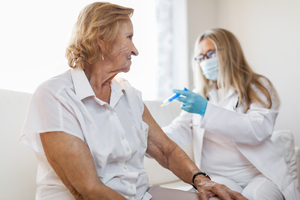Book an STD Test in Detroit, MI
Own a clinic? Add your location.
Help patients book appointments with you on Solv. It's free!
20 instant-book locations

Get Well Urgent Care, Detroit
Get Well Urgent Care
Today
View more
1st Choice Urgent Care, Dearborn East
1st Choice Urgent Care
Today
View more
Get Well Urgent Care, Dearborn
Get Well Urgent Care
Today
View more
Get Well Urgent Care, Lincoln Park
Get Well Urgent Care
Today
View more
Neu Urgent Care
Neu Urgent Care
Today
View more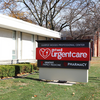
Get Well Urgent Care, Harper Woods
Get Well Urgent Care
Today
View more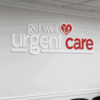
Get Well Urgent Care, Warren
Get Well Urgent Care
Today
View more
1st Choice Urgent Care, Warren
1st Choice Urgent Care
Today
View more
Henry Ford Health- GoHealth Urgent Care, St. Clair Shores
Henry Ford Health- GoHealth Urgent Care
Today
View more
1st Choice Urgent Care, Dearborn West
1st Choice Urgent Care
Today
View more
Redford Urgent Care
Redford Urgent Care
Today
View more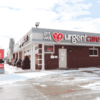
Get Well Urgent Care, Southgate
Get Well Urgent Care
Today
View more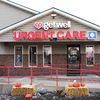
Get Well Urgent Care , Oak Park
Get Well Urgent Care
Today
View more
Henry Ford Health- GoHealth Urgent Care, Southgate
Henry Ford Health- GoHealth Urgent Care
Today
View more
Get Well Urgent Care, Dearborn Heights
Get Well Urgent Care
Today
View more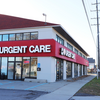
Get Well Urgent Care, Madison Heights
Get Well Urgent Care
Today
View more
1st Choice Urgent Care, Saint Clair Shores
1st Choice Urgent Care
Today
View more
Get Well Urgent Care, Southfield
Get Well Urgent Care
Today
View more
Henry Ford Health- GoHealth Urgent Care, Berkley
Henry Ford Health- GoHealth Urgent Care
Today
View more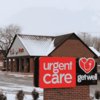
Get Well Urgent Care, Taylor
Get Well Urgent Care
Today
View moreOwn a clinic? Add your location.
Help patients book appointments with you on Solv. It's free!
Overview of STD Testing in Detroit
Who should get tested for STDs?
In Detroit, MI, anyone who is sexually active should consider getting tested for STDs, regardless of their age, gender, or sexual orientation. This is particularly important for those who have multiple sexual partners, are not consistently using condoms, or are involved in any high-risk sexual behaviors. According to the CDC, sexually active gay and bisexual men may benefit from more frequent testing, as well as anyone who has a partner who has tested positive for an STD.
Importance of getting tested
Getting tested for STDs is a crucial step in maintaining both your own health and the health of your sexual partners. Many STDs can be asymptomatic, meaning they don't show any symptoms, so regular testing is the only way to be sure of your status. Early detection and treatment can prevent long-term health complications, such as infertility and increased risk of certain types of cancer. Moreover, knowing your status can help prevent the spread of STDs to others.
Std testing options in Detroit, MI:
Urgent care and walk-in clinics
Urgent care and walk-in clinics are convenient options for STD testing in Detroit. For instance, HMC Urgent Care in nearby Hamtramck and 1st Choice Urgent Care in Dearborn offer STD testing services. These facilities often have extended hours and can provide same-day or next-day appointments, which can be booked through Solv’s website and mobile app.
Primary care providers
Primary care providers are another reliable option for STD testing. If you have a regular doctor, they can provide you with a test during a routine checkup or you can schedule a specific appointment for this purpose.
Free STD testing and community health centers
For those without insurance or who are concerned about cost, free STD testing is available at various community health centers in Detroit. These centers can provide confidential testing and treatment, often on a sliding scale based on income.
At-home testing
At-home STD testing kits are also an option for those who prefer privacy. These kits can be ordered online, used at home, and then sent back to a lab for analysis. Results are typically available within a few days.
Prevalence of STDs in Detroit
Detroit, located in Wayne County, has a high prevalence of STDs compared to other cities in the state and nationally. According to the CDC, Detroit has higher rates of chlamydia, gonorrhea, and syphilis than many nearby cities and counties, including Hamtramck, Highland Park, River Rouge, Grosse Pointe Park, Dearborn, and counties such as Chautauqua County, Beaver County, Washington County, Allegheny County, and Lawrence County. The number of cases has been steadily increasing over the past few years, indicating a growing need for testing and prevention efforts.
Risk factors related to STDs in Detroit
Several risk factors contribute to the high prevalence of STDs in Detroit. These include high rates of poverty, lack of access to healthcare, and limited sex education. Additionally, stigma around STD testing can prevent people from getting tested and treated. It's important to remember that anyone who is sexually active can get an STD, and regular testing is crucial for prevention and treatment.
Solv has strict sourcing guidelines and relies on peer-reviewed studies, academic research institutions, and medical associations. We avoid using tertiary references.
STD Testing FAQs
Where should I get an STD test in Detroit?
In a doctor's office, a health clinic, or an urgent care center, you can get an STD test. If you're experiencing symptoms, it's best to visit a doctor's office, where they can also treat you or issue you a prescription. While some Detroit clinics and urgent care centers allow walk-in appointments, it's advisable to make an appointment ahead of time to prevent excessive waits.
How long does it take to get STD test results?
Various testing are required for various STDs. Depending on the type of STD test you took, you may receive your results in two to ten days. Some outcomes may be immediately available. Your doctor may be able to diagnose an STD through a physical examination. In some cases, your doctor's office may only contact you if your test results are positive.
How much does an STD test cost in Detroit?
The cost of STD testing is governed by several factors, including where you are tested, the type of test you need, and if you have health insurance. Some Detroit clinics may offer free testing or testing on a sliding scale based on your income. Because of the cost, don't put off obtaining an STD test. With your doctor's office, discuss the cost and payment choices. Delaying STD treatment may have catastrophic implications.
Does insurance cover STD testing in Detroit?
The cost of STD testing is governed by a number of factors, including the location of the test, the type of test required, and whether or not you have health insurance. Some clinics may provide free or sliding-scale testing, depending on your income. Don't let the expense of an STD test deter you from getting one. With your doctor's office, discuss the price and payment choices. Delaying STD treatment could have catastrophic ramifications.
How do they test for STDs in Detroit?
There are around 20 different forms of STDs, each with its own set of diagnostic tests. No single test exists that can detect all types of STDs. Your doctor can help you figure out which tests you'll need. In STD testing, a blood sample or a urine sample may be used. Your doctor may also take a swab from the inside of your cheek, your vaginal area, or another potentially infected place.
What STDs can be detected by a blood test?
Blood tests are used to diagnose hepatitis B, hepatitis C, herpes, HIV, and syphilis. In a laboratory, a technician examines a blood sample for antibodies that the body has produced in reaction to disease. The virus's DNA can also be detected by several blood tests. Remember that if you've recently been exposed to an STD and your body hasn't yet produced antibodies, you could test negative even if you have the disease.
Can I get a same-day appointment for STD testing in Detroit?
Many Detroit, MI urgent care providers offer same-day and next-day appointments, which you may book through Solv. To make healthcare more accessible to everyone, we collaborate with thousands of top-rated local providers. Our physician partners understand that waiting days, if not weeks, for an appointment isn't always the best option, and they share our commitment to simple, accessible health care.
How can I book an STD test on Solv?
To find a healthcare practitioner in your area, simply enter your location and search for "STD test" on our website. A list of providers and available appointments can be found on the following page. Choose the most convenient time and location for you. Make it clear that you've come for STD testing.
How long does an STD test take in Detroit?
If you have a specific STD, inform your doctor so that the necessary test can be scheduled. Otherwise, they'll help you figure out which tests you'll need. The nurse or doctor simply needs a few minutes to get a blood sample, a urine sample, or a swab from the probable infection site.
Can I test myself for STDs at home?
Although there are several STD home tests available, not all of them are accurate. The accuracy of any STD test is determined by the quality of the sample taken. For home STD kits, a blood sample, a urine sample, or both are frequently required. Because doctors and nurses have more experience collecting samples, traditional in-office STD testing is the most accurate.
Related Searches
DNA Test in Detroit, MI
Urgent Care in Detroit, MI
Pediatric Urgent Care in Detroit, MI
Allergy Testing in Detroit, MI
Pregnancy Test in Detroit, MI
Vitamin D Test in Detroit, MI
Hepatitis test in Detroit, MI
Dermatologists in Detroit, MI
Mono Test in Detroit, MI
H Pylori Test in Detroit, MI
Ear Wax Removal in Detroit, MI
CMP Test in Detroit, MI
Lab Tests in Detroit, MI
Diabetes Test in Detroit, MI
Strep Test in Detroit, MI
Drug Test in Detroit, MI
Flu Test in Detroit, MI
COVID-19 Testing in Detroit, MI
Pulmonary Function Test in Detroit, MI
Sports Physicals in Detroit, MI
Cholesterol Test in Detroit, MI
DOT Exam in Detroit, MI
RSV Test in Detroit, MI
Basic Metabolic Panel in Detroit, MI
Retail Clinic in Detroit, MI
Blood Test in Detroit, MI
A1C Test in Detroit, MI
COVID-19 Pill in Detroit, MI
TB Test in Detroit, MI
Urinalysis in Detroit, MI
Glucose Test in Detroit, MI
Thyroid Test in Detroit, MI
Diagnostic Test in Detroit, MI
Aetna Urgent Care
Blue Cross Blue Shield Urgent Care
Cigna Urgent Care
COVID-19
Flu
United Health Urgent Care
» All services in Detroit, MIFind STD testing
Nearby cities
Popular Brands in Detroit
Everyday Healthcare, Simplified
Expert advice to help you live your best life




